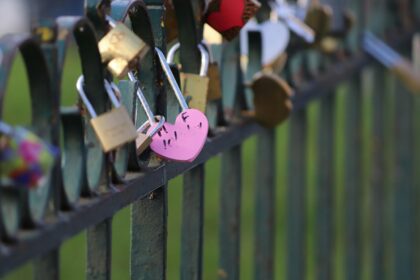Have you ever felt an invisible barrier around you suddenly crossed, leaving you uneasy or unsettled? Our personal space is more than just a physical zone-it’s a sacred extension of who we are, a place where we feel safe, valued, and in control. Respecting physical boundaries isn’t just about manners; it’s about honoring each other’s humanity and emotions. In a world that’s constantly rushing and crowding in, protecting this personal space has never been more essential. Let’s dive into why recognizing and respecting these invisible lines matters so deeply-and how doing so can nurture healthier, more respectful connections in every part of our lives.
Understanding the Emotional Impact of Violated Personal Space
When someone invades your personal space without permission, it often triggers a deep emotional response. This intrusion can make you feel vulnerable, anxious, and even powerless. Your personal space is essentially a protective bubble, a non-verbal boundary that signals safety and comfort. Once this boundary is crossed, your body’s natural alarm system may activate, leading to a surge of stress hormones that heighten feelings of discomfort and distress.
These emotional reactions are more than just fleeting annoyances-they impact mental wellbeing and social interactions profoundly. Common emotional effects include:
- Heightened anxiety and a persistent sense of unease.
- Feelings of anger or frustration towards the person who violated your space.
- Reduced trust and increased guardedness in future encounters.
- Confusion about personal boundaries and how to assert them effectively.
Recognizing these emotional responses is the first step in reclaiming control and cultivating an environment where your personal space is respected and valued.
Recognizing and Communicating Your Physical Boundaries Clearly
Understanding where your comfort zone begins and ends is vital in maintaining your sense of security and well-being. It starts with tuning into your body’s signals-notice when you feel uneasy, tense, or irritable during interactions. These feelings are often subtle red flags that your personal space is being compromised. By recognizing these signs early, you empower yourself to act before discomfort escalates. Remember, your feelings are valid and deserve attention; honoring them means respecting your own needs first.
Once you’ve identified your limits, clearly expressing them to others is equally important. Communication doesn’t have to be confrontational to be effective. Use calm, assertive language paired with confident body language to convey your boundaries. You might say things like:
- “I need a bit more space right now, please.”
- “I feel uncomfortable when people stand this close.”
- “Let’s keep a bit of distance while we talk.”
This clarity helps others understand your requirements and promotes mutual respect. Setting boundaries is a form of self-respect and kindness to others, creating healthier, more comfortable interactions for everyone involved.
Practical Tips for Maintaining Your Personal Space in Different Settings
Navigating the nuances of personal space can feel daunting, especially when different environments come with their own unspoken rules. In crowded places like public transportation or busy events, it’s important to trust your instincts and gently assert your boundaries. Use body language to convey comfort zones-angle your body slightly away or place personal items like a bag strategically to create a subtle barrier. Remember, your sense of security is valid, so don’t hesitate to politely ask for distance if someone encroaches too close. Cultivating small, respectful habits like these can transform anxious moments into empowered experiences.
At work or social gatherings, clear communication becomes your greatest ally. When sharing space with colleagues or friends, setting mutual expectations ensures everyone feels respected without awkwardness. Whether it’s a timely, “Could you please step back a bit?” or gently shifting your chair, these small exchanges maintain harmony while protecting your comfort. Additionally, practice mindfulness-being aware of your own body signals helps you recognize when you need to reclaim your space. Ultimately, your personal space is an extension of your well-being, deserving protection no matter where you find yourself.
- Use non-verbal cues like positioning to create invisible boundaries.
- Politely communicate your need for space without guilt.
- Carry personal items as subtle space buffers in crowded areas.
- Be mindful of your own comfort signals to act promptly.
Empowering Others to Respect Your Boundaries Through Compassionate Dialogue
Building a foundation of respect starts with how we communicate our needs. Instead of framing boundaries as rigid ultimatums, approaching the conversation with empathy invites understanding. When you express your limits, consider using “I” statements that reflect your feelings and experiences, such as “I feel overwhelmed when my personal space is invaded, and I need some distance to feel safe.” This way, others are not only aware of your limits but also more likely to honor them because they see the human emotion behind the boundary. Compassionate dialogue transforms what could be seen as a conflict into a moment of connection and mutual respect.
Encouraging kindness and patience in these conversations can inspire others to reflect on their own boundaries and communicate them as well. Remember, when we lead with compassion, we invite others to do the same, creating a ripple effect of respect. Here are some ways to foster this environment:
- Listen actively to the other person’s feelings and perspective without interrupting.
- Validate emotions by acknowledging their feelings, even if you don’t fully agree.
- Ask open-ended questions to understand their comfort levels and what makes them feel safe.
- Model respectful behavior by gently enforcing your boundaries without blame or anger.
- Express gratitude when someone respects your space, reinforcing positive interactions.
Key Takeaways
Setting and respecting physical boundaries isn’t just about space-it’s about feeling safe, valued, and truly seen. When we honor our own limits and those of others, we create an environment where trust can flourish and connections grow stronger. Remember, your personal space is a sacred part of who you are, and protecting it is an act of self-love. So next time you feel that invisible line getting close, don’t be afraid to stand firm. Your comfort matters, your boundaries matter-and by respecting them, we all make the world a little kinder and more compassionate.
















